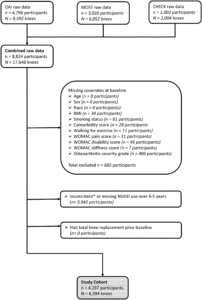Oatmeal and Gout_ Pros, Cons, and Recommendations

Oatmeal and Gout: Benefits, Risks, and Expert Recommendations
Introduction to Oatmeal and Gout
Oatmeal is widely recognized as a healthy, fiber-rich cereal. Packed with antioxidants, it offers several health benefits. However, if you have gout (also known as gouty arthritis), it’s important to moderate your intake to avoid triggering flare-ups. Oatmeal contains purines, compounds that can increase uric acid levels in the blood, potentially leading to gout attacks.
Understanding Purines and Their Impact on Gout
Purines are naturally occurring substances found in many foods, including oatmeal. For individuals prone to gout, high purine intake can result in elevated uric acid levels (hyperuricemia). This excess uric acid can form crystals in the joints, causing inflammation and pain—a hallmark of gout.
Health Benefits and Nutritional Value of Oatmeal
Oatmeal is a nutritional powerhouse that offers several benefits for overall health. It contains key minerals such as magnesium, zinc, and phosphorus. Consuming whole-grain oats has been linked to a reduced risk of cardiovascular disease. Additionally, oatmeal is rich in soluble fiber, which can help with weight management—an important factor in managing gout.
Oatmeal Nutritional Breakdown
A typical serving of raw oats (100g) contains:
-
Calories: 379
-
Protein: 13.15g
-
Carbohydrates: 67.7g
-
Sugar: 0g
-
Fiber: 10.1g
-
Fat: 6.5g
-
Calcium: 52mg
-
Iron: 4.25mg
-
Magnesium: 138mg
-
Potassium: 362mg
-
Sodium: 6mg
Moderating Oatmeal Intake for Gout Sufferers
While oatmeal isn’t as high in purines as certain foods like seafood or organ meats, it’s classified as a mild purine food. Experts recommend limiting oatmeal consumption to no more than two servings per week for individuals with gout. A single serving of cooked oats is about half a cup or 4 ounces (125 ml). Reducing purine intake is essential for keeping uric acid levels under control and preventing gout attacks.
Recommendations for Incorporating Oatmeal into Your Diet
-
Limit servings: Stick to no more than two servings of oatmeal per week.
-
Control portion sizes: Use a measuring scoop to ensure accurate servings.
-
Avoid processed oatmeals: These may contain additional ingredients like barley, wheat, or rye that increase purine levels.
-
Reduce other purine-rich foods: Limit consumption of alcohol and deep-fried foods, as they also contribute to high purine levels.
-
Watch your toppings: Opt for healthier toppings like fresh fruits instead of sugar, cream, or sweetened yogurt.
-
Add gout-friendly foods: Include anti-inflammatory foods such as cherries, which may help reduce gout flare-ups.
-
Stay hydrated: Drinking plenty of water helps your kidneys excrete excess uric acid.
Healthy Oatmeal Alternatives
If you’re concerned about oatmeal’s purine content, consider other nutritious options:
-
Fresh fruit smoothies made with plant-based milk
-
Homemade oat and cherry muffins
-
A Mediterranean-style breakfast featuring whole grains, fruits, nuts, and olive oil
Managing Gout Through Diet and Lifestyle
A gout-friendly diet focuses on limiting foods high in purines and incorporating foods that support overall health. The Mediterranean diet, for instance, has been shown to lower the risk of gout attacks, with an emphasis on whole grains, fruits, vegetables, and healthy fats.
Conclusion: Managing Gout with Smart Dietary Choices
Managing gout effectively requires careful consideration of your diet. While oatmeal can be part of a healthy diet, it’s crucial to monitor your purine intake and make adjustments as necessary. By following expert guidelines and working with your healthcare provider, you can enjoy the health benefits of oatmeal without triggering gout flare-ups.
Frequently Asked Questions
What Are Purines?
Purines are natural compounds found in many foods that the body breaks down into uric acid. High levels of uric acid can contribute to gout, especially when purine-rich foods are consumed in excess.
What is the Difference Between Gout and Arthritis?
Gout is a specific type of arthritis caused by the accumulation of uric acid crystals in the joints. While it is a form of arthritis, other types of arthritis, such as osteoarthritis or rheumatoid arthritis, have different causes and symptoms.
Expert Tips for Managing Gout Through Diet
-
Include seasonal variations in your meals to keep your diet interesting.
-
Try quick prep methods to save time.
-
Consider dietary restrictions and find appropriate substitutions.
-
Stay hydrated to help your kidneys manage uric acid levels.
Key Takeaways
-
Moderation is key when consuming oatmeal if you have gout.
-
Focus on low-purine, anti-inflammatory foods.
-
Work with your healthcare provider to manage gout effectively.







